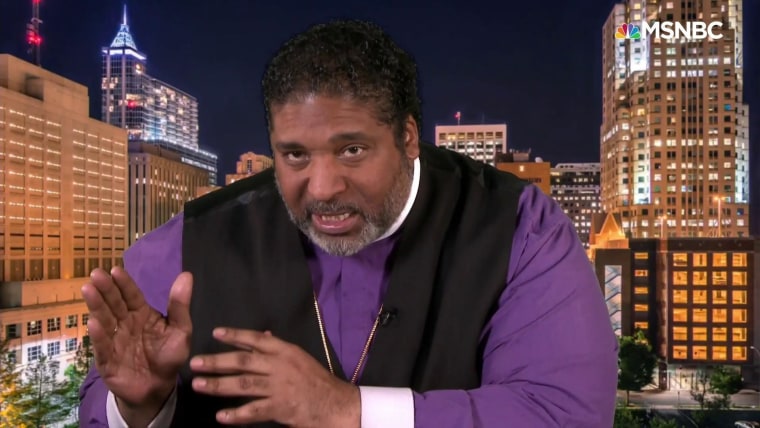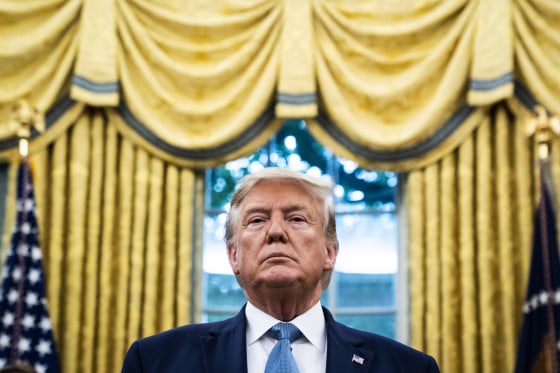According to new analysis from Pew Research center, "evangelical" doesn’t mean born-again anymore; it means Republican. Of course, evangelicals have embraced the Republican party since the late 1970s, but, per the analysis, more white Americans adopted the evangelical label between 2016 and 2020, years that include former President Donald Trump’s presidential campaigns and his time in the White House.
When it comes down to it, evangelical is more a political label than a religious one.
When it comes down to it, evangelical is more a political label than a religious one. People who embrace the label use it to signal that they’re against immigration, science and abortion and to signal a belief that discussions of racism in America are antithetical to their idea of America.
The Pew survey shows that Trump garnered even more support in 2020 from evangelicals than he did in 2016. Between 2016 and 2020, 16 percent of people who had not self identified as evangelical in 2016 identified that way by 2020. Interestingly enough, this 16 percent did not vote for Trump in 2016. In 2020, out of the 78 percent of white evangelical voters who voted for Trump, 18 percent of these were Trump converts — evangelicals who didn’t support him in 2016.
The Pew Survey isn’t the only evidence pointing to this hardening of American evangelicalism. A PRRI survey finds that while the majority of Americans place the blame of the insurrection on white supremacist groups, Trump, and conservative media platforms, conservatives like evangelicals do not believe those were the culprits. To the contrary, 57 percent of white evangelical Protestants believe liberal left-wing groups such as antifa were responsible for the Jan 6. riots, and 68 percent of white evangelicals surveyed believe Trump is a “true patriot.”

All of this points to the fact that evangelicalism is not a religious group exclusively, but a majority white religious group linked strongly to Trump, the Republican party and particular ideas about race, gender, morality and America.
In my book “White Evangelical Racism, the Politics of Morality in America,” I argue that evangelicalism is not only about a cultural whiteness, but it’s also about a political whiteness. White evangelicals support candidates who espouse both political and moral views that coalesce with theirs. Recent books by Robert P Jones, Kristin Kobes Du Mez, and Andrew Whitehead and Samuel L. Perry also note the roles of whiteness in religion, masculinity and nationalism for evangelicals.
While this may surprise evangelicals (including Baptist theologian Russell Moore) who have been defending their religious movement against Trumpism, the fact is, Trumpism and evangelicalism are complementary to one another.
Evangelicals are engaged in a political revival.
There are a lot of reasons one might attribute for more people calling themselves evangelical, but it certainly isn’t because of a great religious revival. Evangelicals are engaged in a political revival, steeped in racism, anti-immigrant sentiment, sexual morality and misplaced nostalgia.
Consider the things in 2021 that have contributed to this politicization: the Jan. 6 insurrection, the abortion ruling in Texas, the anti-vaccine movement, the anti-critical race theory movement, and anti-immigration sentiment arising around Afghan nationals and other groups. Any one of these would have driven evangelicals to political action, but now it is a virtual feeding frenzy for eager politicians and evangelical leaders hoping for money, power and status by embracing these sentiments and fears among their followers.
These surveys tell us the trajectory Republican politicians will use to stoke their evangelical base in 2022 and 2024 election cycles. Now that those who don’t know the theological beliefs of evangelicalism are identifying themselves as such, there should be no confusion about what evangelicalism really is in America: a full-fledged religious political movement whose allegiance is to the Republican party’s issues and to whiteness.

